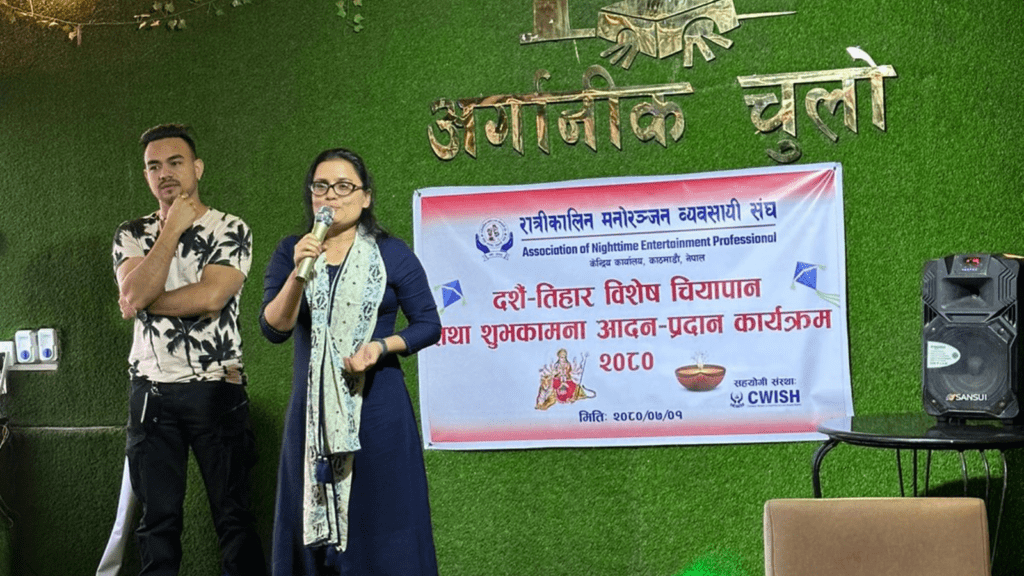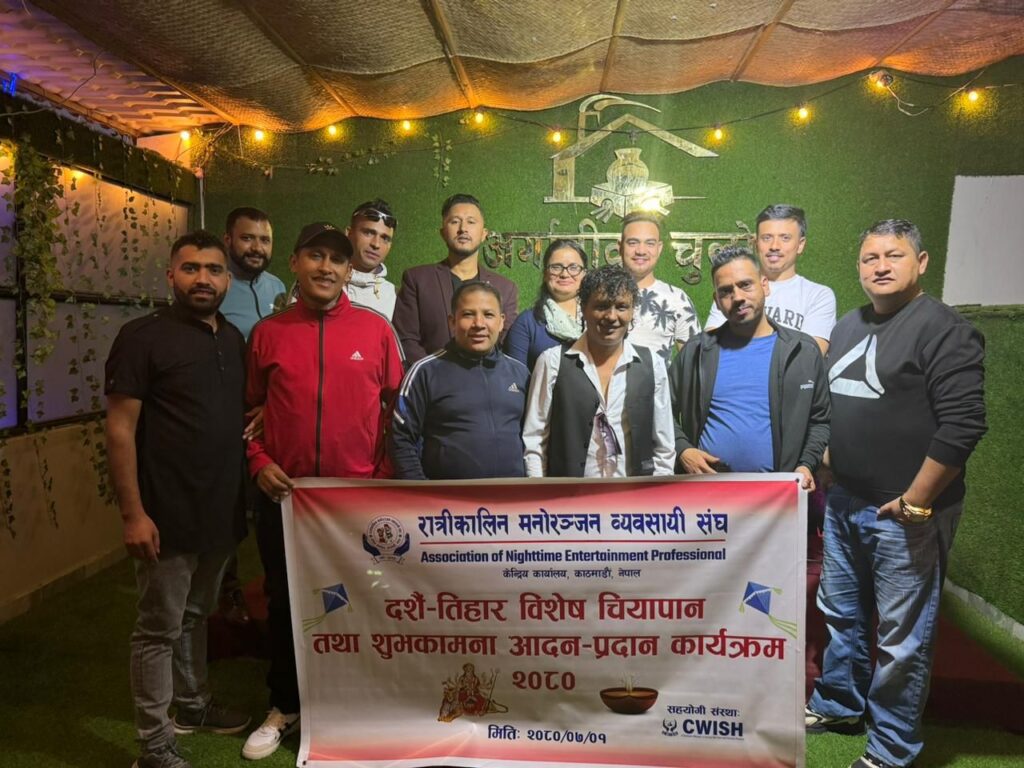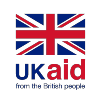Three months after formally closing down the action research group, “Night Entertainment Business Association Group of Dohori and Dance Bar owners” organized a celebration and greeting exchange program during Dashain, the biggest Nepalese festival. Thirty association members, their key staff, and the media were among the participants alongside CLARISSA.
This research group comprised of 30 dohori and dance bar businesses within Koteshowr and the surrounding area and membership is voluntary. Nine of the owners affiliated with the association led participatory action research within CLARISSA on the overarching theme “Role of Association for improving night entertainment business management practices for positive changes and reducing worst forms of child labour”. The group focused on a specific issue: the lack of document management systems within business venues leading to the prevalence of the worst forms of child labour in Dohori and Dance Bars from Feb 2022 to July 2023.

During their engagement with CLARISSA, members of the Action Research Group gathered and analysed evidence that contributed to the hiring of minors in their sector. They concluded that poor management practices meant such an issue was prevalent. They further developed their theory of change and began to implement it by revising contracts used while hiring employees, keeping records of citizenship or passports as age verification documents, developing a code of conduct for employees, and conducting monitoring visits of all the members of the association. While these business owners are focused towards profit-making, they are also aware of the fact that their businesses are stigmatized and criminalized because their work is at night, serving alcohol and entertaining people. One Dohori owner and member of the ARG said, “No one has a positive perception and view towards this business on Google.” (Referring to only negative articles, reports and videos being available in Google search), and this was the primary motivation for the group to bring positive changes in their sector.
After engaging with the CLARISSA action research process, the group started to think about ways to address this issue and realized one way was by reducing child labour in their sector. CLARISSA supported owners by orienting them on the issue of worst forms of child labour. Positive outcomes were shared by owners after that:
“We had knowledge of child labour, but after training, we got even more information on child labour. We learnt that the business should be registered and renewed. We have to be updated about legal aspects. Based on the information received there, we also revised our contract. We included information like employers must be above 18 (must submit a copy of their citizenship certificate or passport) and they should be Nepali citizens in the contract document. The business owners who had not renewed their registration also have done that”.
They initiated background checks of employees before hiring to understand the employee’s family condition, their past experience in this sector, and their mental health and if they are being forced to work or of their own free will. CLARISSA created a platform for owners to seriously think about the issue, and to discuss, plan and work towards the reduction of the worst forms of child labour. At the end of the Action Research process, the group did the final review and reflection of their seventeen-month journey with CLARISSA and had a formal closing of the group with an agreement to continue working towards the issue of the worst forms of child labour and creating a better image of the sector.
As CLARISSA was directly involved with the Action Research Group members for seventeen months, their learnings and recognition of the issue of worst forms of child labour beyond CLARISSA were key evidence of the achievements and sustainability of the process. The Dashain festival celebration was one of the lived experiences for CLARISSA on changes that can be achieved through a participatory action research process. Forty-three participants attended the celebration program, where action research group members shared enthusiastically about engagement with CLARISSA during their conversations and their new knowledge about the issue and relevant laws and policies. Through CLARISSA learnings, they implemented these changes in all affiliated association business members in their area and confidently claimed that in those 30 businesses, no minors are currently employed. They further emphasized the role of CLARISSA in guiding them and their motivation to continue these practices and to take it further – across the dohori and dance bars throughout Nepal – through the Federation that is in the process of being established. Members also committed that at an individual level, they will continue to hire employees only after an age verification document and with a proper contract, and will be held accountable by their peers. The Chairperson of the Association mentioned how he is often disliked by some of his peers from other locations when he discusses how the worst forms of child labour are contributing to the bad reputation of the whole sector, but he committed to continue sharing at all available platforms.

Such moments highlight participatory action research as a useful way to bring changes in a system dynamic even with a group whose focus is on profit-making!
